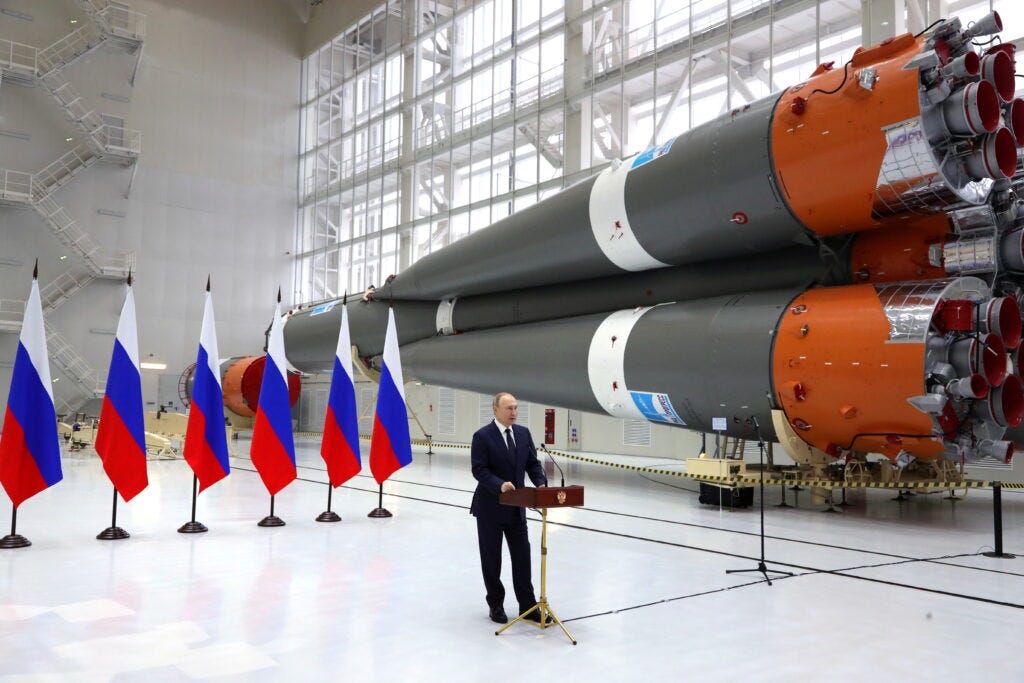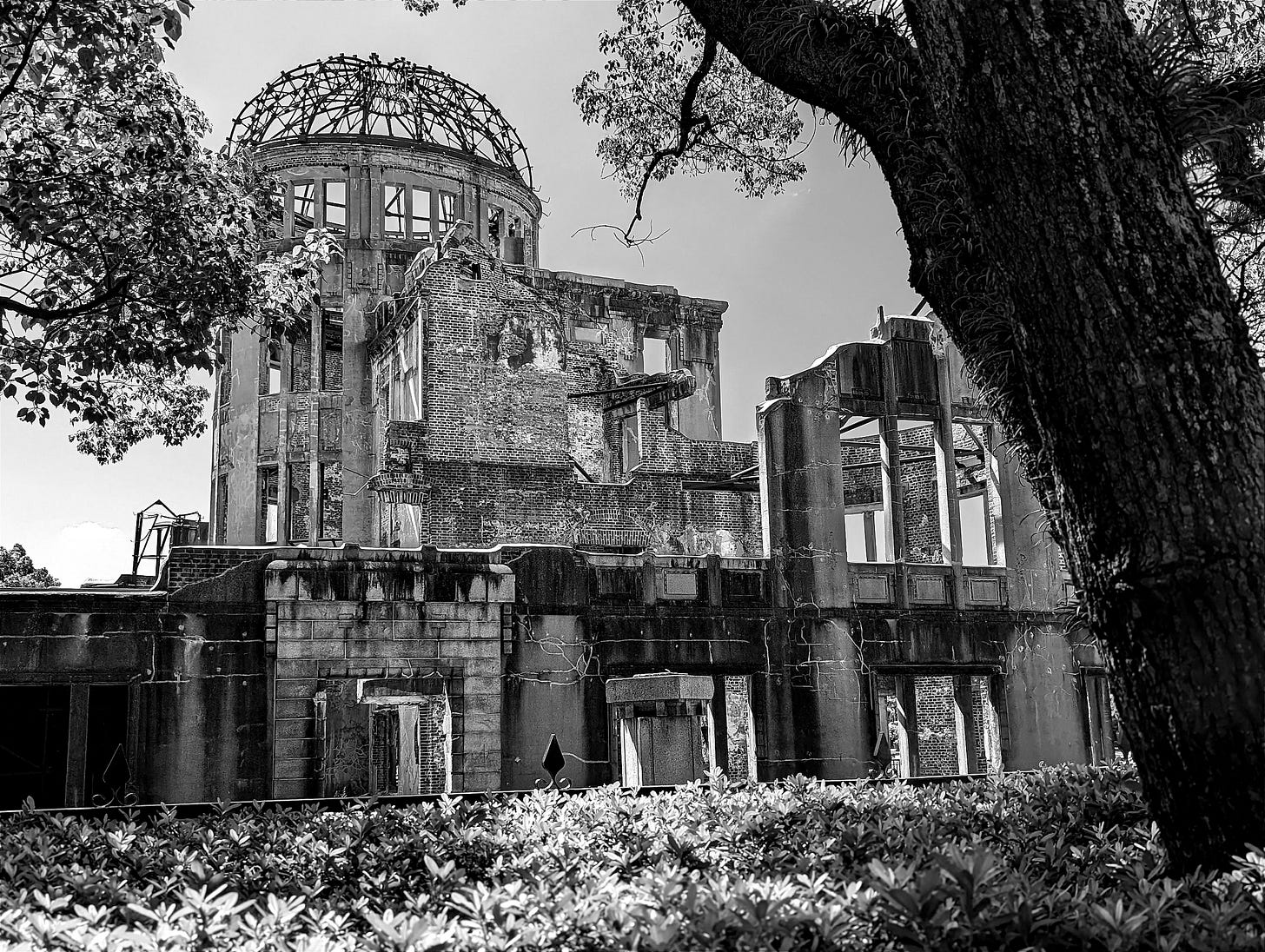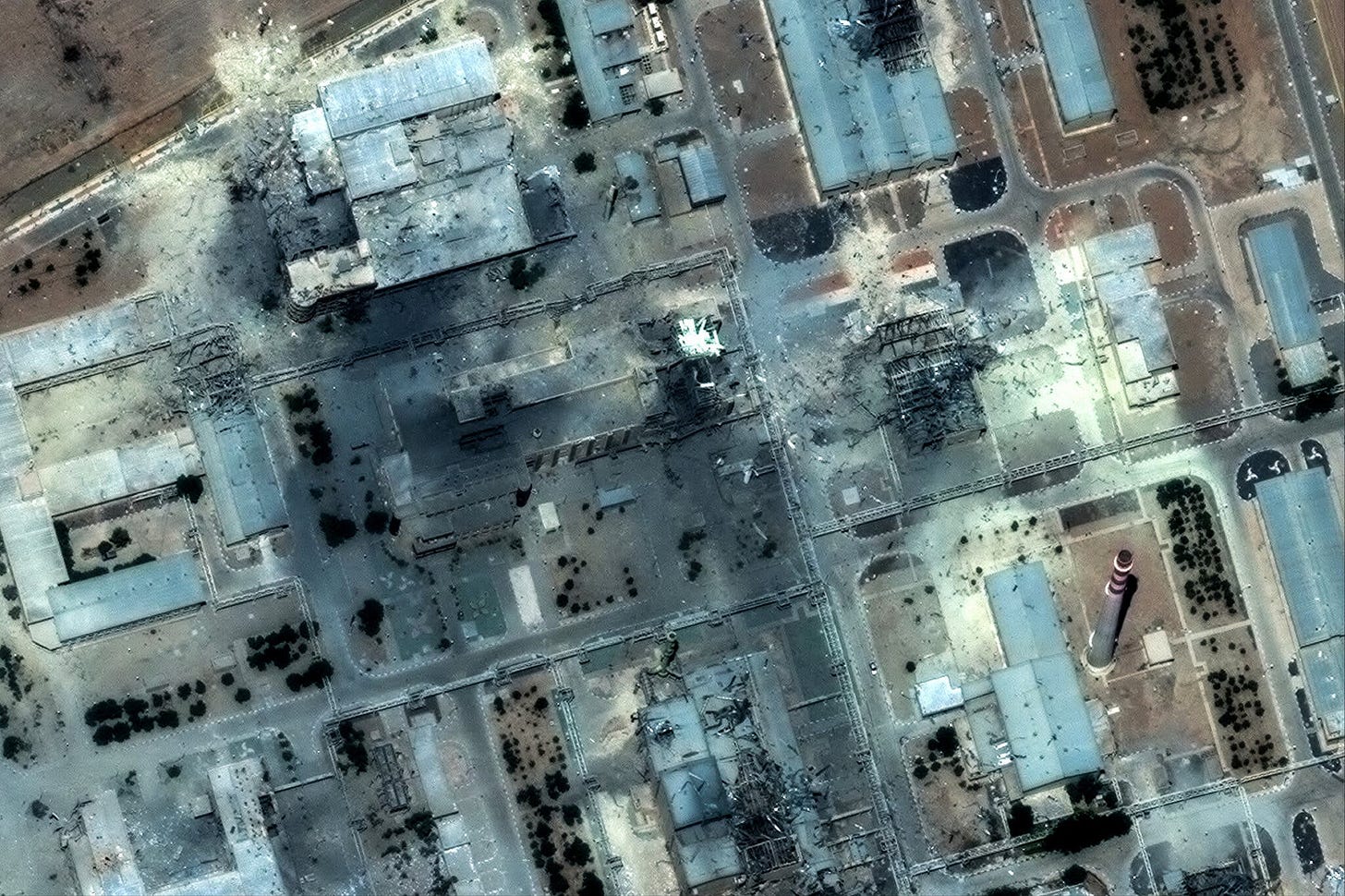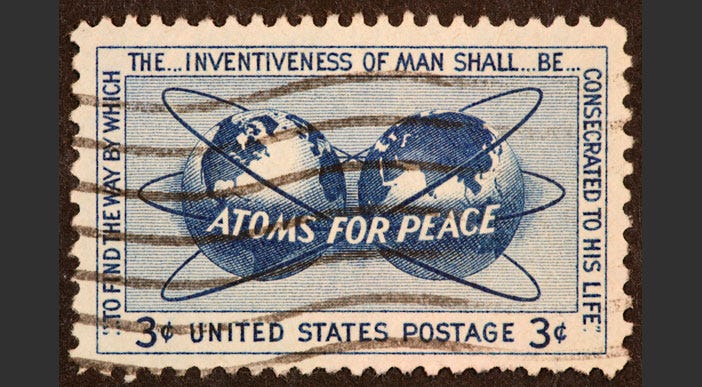What I'm Reading - the nuclear weapons edition
July 11: Five reads that piqued my interest this week
More nuclear weapons?
My top read this week is this wonderful and cogent essay by Ross Anderson on the inevitable result of the decline of the United States under US President Donald Trump and MAGA.
As they destroy and potentially retreat from allies, those countries no longer benefiting from the US security and nuclear umbrella will naturally ask how they can defend themselves against larger giants.
This has started happening in Europe via Poland, but is spilling over with more zeal in Asia, particularly South Korea and Japan, which, given its staunch commitment to a nuclear-free world after the bombings of Hiroshima and Nagasaki, is more than extraordinary.
This essay is as timely as it is prescient.
For all the recent focus on Iran, in a cruel irony, East Asia is where the world’s fastest buildups are unfolding, in China and North Korea. A dangerous proliferation cascade may be about to break out, right in the shadow of Hiroshima. It would likely start in South Korea, and spread first to Japan. It might not stop there. The decades-long effort to keep nuclear weapons from spreading across the planet may be about to collapse.
…
Under Trump, the United States is now reported to be considering pulling troops out of South Korea, though administration officials have denied that. “The Korean people do not know if the U.S. commitment to them is real,” Heo told me. They may soon decide that to deter Kim, they need nuclear weapons of their own.
…
When Heo and I discussed the possibility that South Korea may need to go nuclear, he emphasised that he wouldn’t want an arsenal just for its own sake. Members of the defence intelligentsia would prefer to keep the American alliance the way it is. But they have to prepare, in case South Korea is left to deal with Kim on its own. Like almost everyone I talked with in Seoul, Heo eventually mentioned Ukraine. When the Soviet Union fell, Ukraine had a nuclear arsenal on its soil, but Bill Clinton helped persuade the Ukrainians to give it up. Not to worry, he said. The U.S. will have your back.
…
Jimbo told me that if South Korea built its own nuclear arsenal, the desire to possess such weapons would surely spill over to Japan. “We would have to be very serious about what to do next,” he said.
Japan has been rearming itself with impressive speed already. As the country’s war crimes have receded in historical memory and China has grown stronger, many Japanese have come to feel that the country’s pacifist constitution is outmoded.
France and UK agree new nuclear cooperation
The state visit by Emmanuel Macron to the UK signalled and demonstrated the start of something new — the post-Brexit relationship Britain can have with the EU.

The French President tried to rope the UK into his anti-American attempt at European ‘Strategic Autonomy’ — let’s see how that goes — as he warned against the dangerous dual dependencies of relying on the US and China for critical trade.
The threat that MAGA poses to NATO and Europe’s security is riper for conversation.
And on his state visit, the President and UK Prime Minister Sir Keir Starmer announced that Europe’s only two nuclear-armed states would start a new nuclear relationship.
They declared that there was no ‘extreme threat to Europe that would not prompt a response by both nations.’ They will also work on developing new nuclear capabilities together.
The French deterrent includes both submarine-launched ballistic missiles and air-launched nuclear missiles of its own design. More importantly, these weapons are technically independent of NATO nuclear planning, unlike the British nuclear deterrent, which is also closely intertwined with that of the United States.
The British deterrent comprises submarine-launched ballistic missiles. The British government recently announced plans to acquire F-35A stealth fighters that will have the ability to deliver U.S.-owned B61-12 nuclear gravity bombs. While this will reinstate the United Kingdom’s air-launched nuclear capability, the use of those weapons has to be approved by the United States and the NATO alliance.
…
These discussions underline a growing rift in the transatlantic alliance under U.S. President Donald Trump, emphasised by calls from German leader-in-waiting Friedrich Merz for talks with his British and French colleagues about European ‘nuclear sharing or at least nuclear security.’ Calling upon the United Kingdom and France to offer greater nuclear protection, Merz also warned that Washington’s ‘interest in Europe is decreasing.’
…it seems the primary thinking behind the nuclear coordination agreement is to show joint resolve, especially bearing in mind the growing threat from Russia and the concerns about the reliability of the United States as a guarantor of deterrence in Europe in the future.
French General says Russia is an enduring threat
It’s always worth reminding why this debate and these actions are occurring.
France’s Chief of Staff to the French Armed Forces gave a rare briefing to outline the enduring threat France and Europe face from Russia.

Julien Hoez summarises below:
Thierry Burkhard said that Russia views France as its principal threat and that the international order is deeply and durably disrupted.
He continued by highlighting that, ‘Russia is a nuclear and conventional military power’ that has ‘all the attributes of a totalitarian state: a centralised decision-making capacity, a conditioning of the population.’
For France and Europe more broadly, this constitutes ‘a long-lasting, close and dimensional threat’, which, according to Burkhard, ‘will constitute a real threat to our borders’ by 2030.
He summarised what he sees as Vladimir Putin’s strategic objective: ‘to weaken Europe and dismantle NATO.’ However, he held back on commenting regarding whether France may need to engage militarily in Europe in the near future.
‘The war is already here in Europe,’ he stated simply.
Burkhard has previously given similar briefings to parliamentarians and government ministers, and has made it clear that his aim is to help foster public understanding and break what he referred to as ‘a form of habituation to violence.’
He made an effort to call for a ‘lucid’ view of the international situation, warning that elsewhere in the world, the use of force and destabilisation are becoming normalised and are active weapons in modern warfare. ‘National cohesion cannot be achieved without awareness, if there is a denial,’ he warned.
Iran’s stockpiles survived US bunker-busting strikes
David Sanger reports that Israel has concluded that some of Iran’s enriched uranium survived the Trump Administration’s strikes, which used bunker-busting bombs.
The official, and other Israelis with access to the country’s intelligence findings, said any attempts by Iran to recover it would almost certainly be detected — and there would be time to attack the facilities again.
Western intelligence officials confirmed the Israeli assessment, saying that they believed much of the stockpile was buried under rubble in Iran’s nuclear laboratory at Isfahan and potentially other sites. One of the officials concurred that the United States or Israel would know if the Iranians tried to retrieve the enriched uranium. Such a move, the official said, would surely invite a renewed Israeli bombing attack.
Israel, the United States and now a growing number of outside experts agree that all of Iran’s working centrifuges at Natanz and Fordo — about 18,000 machines, which spin at supersonic speeds — were damaged or destroyed, probably beyond repair. The question they are now examining is how long it would take the Iranians to rebuild some or all of that capability, especially after the top scientists in their nuclear program were targeted and killed.
…
‘The country is going dark,’ said Ray Takeyh, an Iran scholar at the Council on Foreign Relations who has followed the program over its many iterations in the past 25 years. ‘I think where we are headed is that the next phase of Iranian proliferation will be the dispersal of the effort around the country into a large number of small workshops. What the Iranians have learned is that even something you put in a mountain can be bombed.’
If Mr Takeyh is right — and his prediction has been echoed by several American, British and European intelligence officials over the past two weeks — Israel and the United States could be entering a new era of hide-and-seek.
Iran seems unlikely to try to rebuild its nuclear sites at Fordo or Natanz. Even Fordo, built deep inside a mountain, was far more vulnerable than its Iranian designers had believed. (One key vulnerability was the existence of ventilation shafts that went deep into the plant; the American attack included strikes that sent the 30,000-pound bombs into those shafts, enabling them to plunge closer to the control rooms and enrichment halls than if they had to blast through the rock.)
For the Iranians, getting access to the fuel that is already enriched to 60 perc ent purity — just shy of the 90 per cent ordinarily used in nuclear weapons — is critical. The vast majority of the effort to get to highly enriched uranium is at the initial stages.
But any effort to dig the fuel out from the rubble of Isfahan may be hard to hide from satellite surveillance.
Can non-proliferation be saved?
Henry Sokoloski from the Nonproliferation Policy Education Centre and former deputy in the Pentagon for nonproliferation in the early nineties, believes there is time to arrest the trend of states acquiring nuclear weapons.
He argues that mistakes were made by allowing India, North Korea and Iran permission to make nuclear fuel without properly monitoring and enforcing the crossover into producing nuclear weapons.
As special envoy to the Middle East Steve Witkoff rightly noted, ‘enrichment enables weaponisation’. Yet, policy has not changed to reflect that realisation. The White House recently directed the Department of Energy to pursue 20 new international civil nuclear deals that would include technologies and materials — including enriched uranium and advanced plutonium fuel cycles — that the US deemed too dangerous for Iran.
Similarly, the US has offered to help Saudi Arabia enrich uranium as a part of any civil nuclear deal. That’s a mistake if Washington wants to avoid further proliferation. Besides saying no to reprocessing and enrichment, the US and like-minded nations should lay down the law on NPT withdrawals. Non-compliant nations should not be allowed to leave the treaty until they’ve come back into full compliance. Automatic sanctions against any such attempts should be laid out now before any non-compliant state attempts such a move. Finally, nuclear-armed nations that left or never joined the NPT — Israel, North Korea, Pakistan and India — should be encouraged to come into full compliance. Some will argue that in a multi-polar world, tightening the rules is for fools.
The stark alternative of a nuclear Wild West suggests otherwise.
And that’s my list for this edition.
Please do send me anything that’s caught your eye, I enjoy knowing what you’ve been reading.
Some of you have started to offer me copies of your books etc. Please email me at latika@latikambourke.com for a forwarding address for hard copies.





